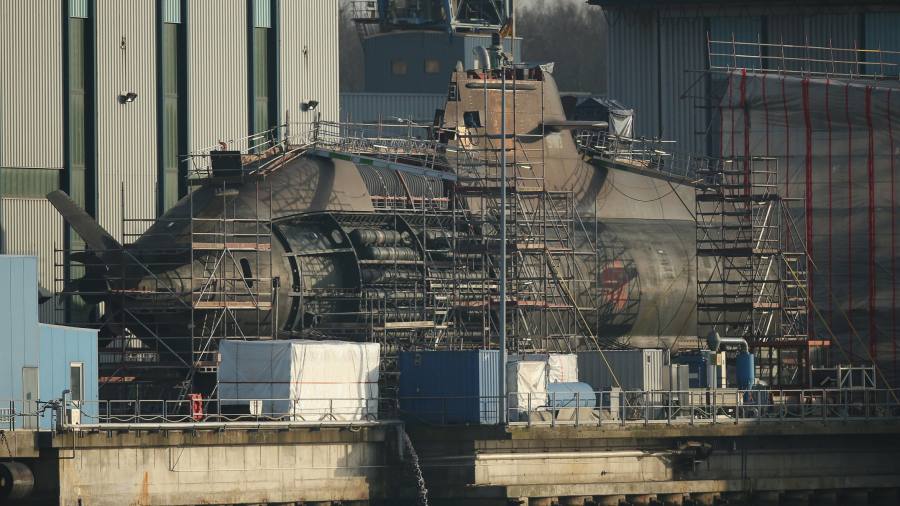
German industrial group ThyssenKrupp has revived plans to sell its submarine and maritime systems unit, a move likely to face scrutiny from politicians and government officials as Berlin seeks to boost its defence manufacturing.
The decision was announced by employee representatives on Friday in an email to workers seen by the Financial Times. Employee representatives make up half of Thyssenkrupp’s supervisory board.
A bidding contest is expected to start after Easter, according to three people close to potential buyers. Private equity firms are among the parties interested, they said.
The division, which includes the group’s shipyards in Kiel in northern Germany, acquired a shipyard in Wismar last year in anticipation of more submarine orders from the German government. In 2021 the group won a €5.5bn contract to deliver four of the vessels to Norway and two to Germany.
It generated €1.8bn in sales last year and €32mn in adjusted earnings before interest and tax in 2022.
Russia’s invasion of Ukraine has led to mounting interest from buyout groups into the defence sector, as governments across Europe increase military spending.
That has prompted what German chancellor Olaf Scholz has called a Zeitenwende, an epochal shift, spurring the country to massively increase its military spending, revamp its army and bolster its defence industry, after decades of reluctance in the wake of the country’s second world war legacy.
But one person close to ThyssenKrupp said the company did not expect the government to intervene. Board discussions on Friday suggested that Berlin “supports the formation of a strong national shipbuilding company”, according to the employee memo.
A committee would be set up in the “near future” to “take the interest of the employees into account”, according to the memo to workers.
ThyssenKrupp declined to comment for this story.
ThyssenKrupp, once a symbol of Germany’s industrial might, has for years been plagued by losses as it grapples with slowing demand from the country’s automotive industry for its steel.
The 200-year-old company is in the final phase of a restructuring to pay down debt. Over the past years the Essen-based group has sold its car parts and infrastructure businesses, an Italian stainless steel plant and its elevator operations, which it sold for €17bn in 2020 to private equity.
The company’s share price dropped by more than 8 per cent last month when the company said its plans to offload its marine systems and steel units were delayed.
Employee representatives noted on Friday that there were no “concrete plans” regarding Thyssenkrupp’s steel unit — which was the original activity of the group — nor regarding its stake in the Hüttenwerke Krupp Mannesmann plant.
They criticised management lead by chief executive Martina Merz for the delays. “There has been a lack of an overall concept from the board for months,” they wrote. “Nothing has changed since last autumn and time has been wasted again unnecessarily.”